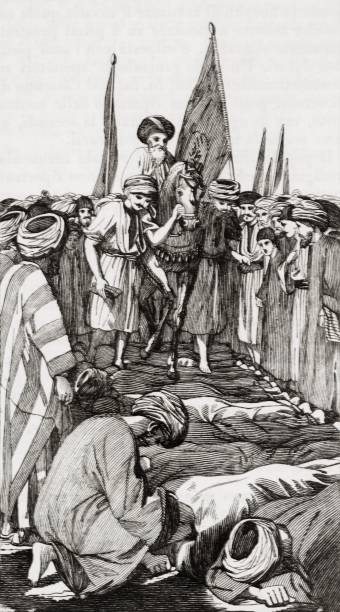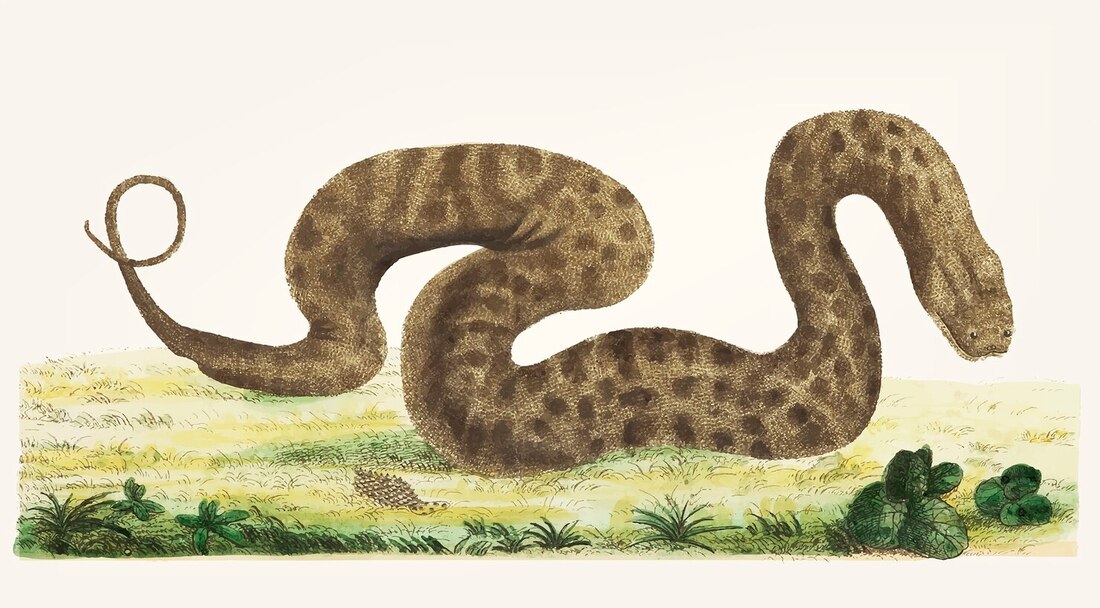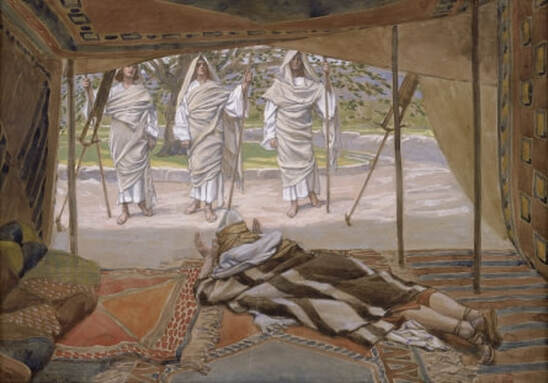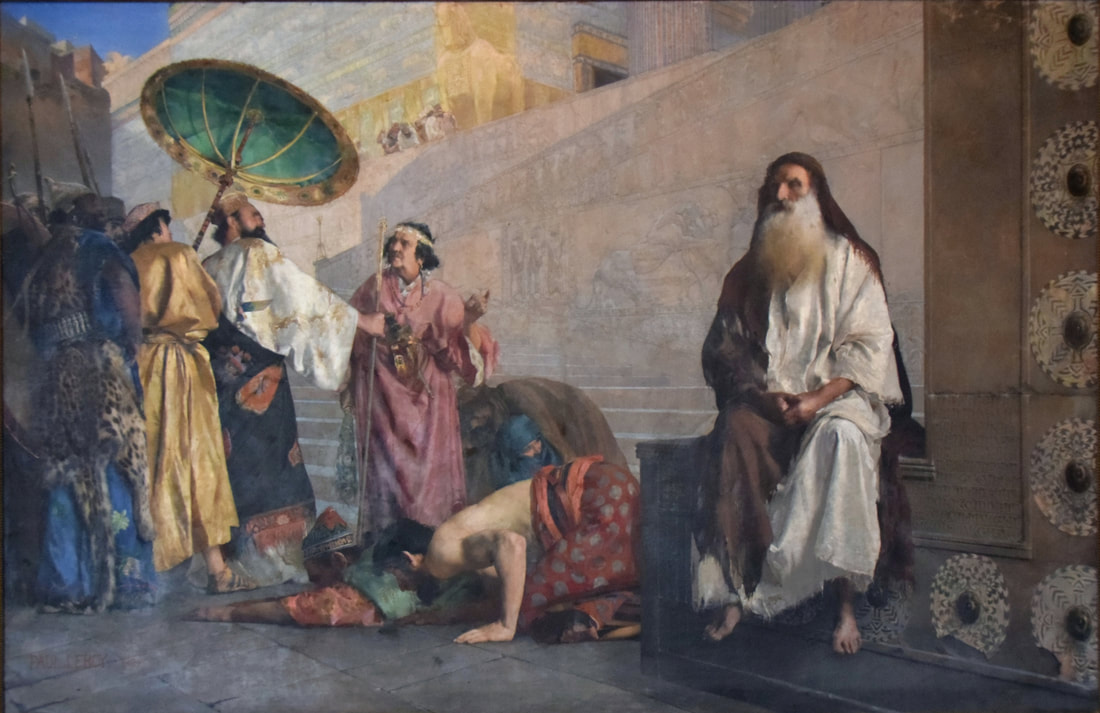|
Gen 3:14: "And the LORD God said unto the serpent, Because thou hast done this, thou art cursed above all cattle, and above every beast of the field; upon thy belly shalt thou go, and dust shalt thou eat all the days of thy life." (KJV) The ancient world was a dusty place. Factors such as drought, heat, rocky terrain, dry soil, bare land, sand, and storms, along people and animal debris, all contributed to a dirty environment. Keeping clean was a chore. In scripture, the Hebrew word for dust is awfawr. It appears 108 times in the KJV Bible, and it can have any of the following meanings: dust, earth, mud, ashes, ground, mortar, powder, or rubbish. From Alfred Russel Wallace: "The majority of persons, if asked what were the uses of dust, would reply that they did not know it had any, but they were sure it was a great nuisance. But though we can thus minimize the dangers and the inconveniences arising from the grosser forms of dust, we cannot wholly abolish it; and it is, indeed, fortunate we cannot do so, since it has now been discovered that it is to the presence of dust we owe much of the beauty, and perhaps even the very habitability, of the earth we live upon." ("The Wonderful Century", p.69-70. Published 1899, New York.) While the scientific world declares dust to have beneficial purposes, ancient people were not so convinced. Their dislike of dust brought about a number of symobloic uses of dust, all of which had negative meanings. 1. The word dust became a figurative term for a person's lowly position in society. 2. The word dust could also mean the grave (placed in the dust) or death (returning to dust). 3. To shake the dust from one's feet meant to renounce all future association with a person or situation. 4. Throwing dust in the air was a sign of sorrow or distress. 5. Throwing dust in the air was a sign of judgement or a negative decision. 6. Throwing dust upon a criminal's head meant that the criminal was to receive a death sentence. 7. Throwing dust upon one's own head was a sign of mourning. 8. Sitting in the dust was a sign of extreme affliction. While all of these symbolic uses of dust seem rather odd, there is another application that is even more disturbing: to "eat dust". Or as it appears elsewhere in the Bible and other translations, kiss the dust or lick the dust. The first known instance of "dust eating" is recorded in Genesis 3 and comes from the curse of humiliation that God pronounced on the snake that tempted Eve. From that moment on, the snake and all of its descendants were doomed to slither on their bellies and exist in the dust for as long as they lived. It was from God's curse that a number of customs involving humiliation evolved and were practiced among different cultures throughout the ages. Some of these acts are still performed today. HUMILIATION AS A PART OF DEVOTION (WORSHIP) From Joseph Roberts: "People on their arrival from England are astonished at the apparent devotion of the Hindoos (and) when they see them cast themselves down before their temples. Those of high rank, and in elegant attire do not hesitate thus to prostrate themselves in the dust, before the people. How often as you pass along, may you see a man stretched his full length on the ground, with his face in the dust, pouring out his complaint or making his requests unto the gods. It matters not to him who or what may be near him: he heeds not, and moves not, till his devotions are finished." ("Oriental Illustrations of the Scriptures", p. 251. Published 1835, London.) From Thomas Wright: "The governor of Palestine, who was acquainted with the family of St. Paula (380 A.D.), prepared to receive her in Jerusalem with due honours, but she preferred taking up her abode in a small cell, and she hastened to visit all the holy objects with which she was now surrounded. She went first to the church of the Holy Sepulchre, where she prostrated herself before the true cross, and entered the sepulchre itself, after having kissed the stone which the angels had taken from the entrance." ("Early Travels in Palestine", Introduction - p. X. Published 1858, London.) From J.H.A. Bomberger: "On April 17, 1349, in Easter-week, the first Flagellaut (flagellant) Society came to Magdeburg (Germany) from Pirna (Germany). When the company approached a town they formed themselves into a regular procession. The candles, crosses, and banners were borne in front, then followed the penitents, two and two, wearing a red cross on their clothes. One of the company commenced singing, and all joined in. As they entered the town the bells were rung. On coming before the church all kneeled, and as certain lines were sung, they prostrated themselves on the ground with outstretched arms, forming a cross, and remained thus until the leader gave them a hint to rise." ("The Protestant Theological and Ecclesiastica Encyclopedia", Vol. 2, p. 291-292. Published 1860, London.) From Edwin Sherman Wallace: "Alexander is said by Josephus to have prostrated himself before the high-priest (Jaddua) and then to have gone to the temple and offered sacrifices in the name of God : this is doubted, (by some) but at all events, the city was especially favored by the conqueror." ("Jerusalem the Holy", p.52-53. Published 1898, New York. (From "Antiquities of the Jews", by Josephus, Chapter 8, Par. 6. Written 96 A.D.)  The Doseh Portrayed in this woodcut is a religious ceremony called the Doseh. Shown here is the Sheikh of the Sa'adiya order riding his horse over the prostrate bodies of his followers. Afterwards,all sprang up unharmed. From "Manners and Customs of the Modern Egyptians". By Edward. W. Lane. Woodcut produced 1833-1835. HUMILIATION IN THE ACT OF OBEISANCE FROM SIR JOHN MANDVILLE: "And before the soldan (sultan) cometh no stranger, but if he be clothed in cloth of gold, or of Tartary or of Camaka, in the Saracens' guise, and as the Saracens use. And it behoveth, that anon at the first sight that men see the soldan, be it in window or in what place else, that men kneel to him and kiss the earth, for that is the manner to do reverence to the soldan of them that speak with him." ("The Journeys of Sir John Mandville", p.26. Recorded from 1355 in French. Cotton manuscript in modern spelling first printing 1499. Published 1900, London.) From Hugh Boyd: "We soon arrived at Candy (Kandi), which we found of better appearance, and more regularly built, than any Indian town I had yet seen. After advancing about a quarter of a mile along this street, we turned...the next corner, we saw the palace on our right. We halted here some time until further permission should be sent us from the palace to approach. (Later) The curtain was now removed, and the whole terminated in a large alcove, retired within which was a very high throne, and his Majesty seated on it with much solemnity. He wore a large crown, which is a very important distinction from the other princes of the East. The removal of the curtain was the signal for our obeisance...My companions immediately began the performance of theirs, which were in the most perfect degree of eastern humiliation. They almost literally licked the dust; prostrating themselves with their faces close to the stone floor, and throwing out their legs and arms, as in the attitude of swimming. ("The Miscellaneous Works of Hugh Boyd", Vol. 2, pp. 209-214. Published 1800, London.) From James Morier: "Wherever the (Persian - Sultan Shahanshah, the Great) King travels in his own dominions, his expenses are defrayed by the country through which he passes; and by virtue of the ancient laws of hospitality, which are as binding on the poor Turcoman in his black tent as on the Viceroy in his palace, the Monarch, his sons, his ministers, and his troops, all now became mehmans, or guests, of the (local) Prince. The Prince was solicitous to make his royal guest satisfied with his reception, and every effort was exerted to strike the King with astonishment at the improvements of Aderbigian ( Azerbaijan). The building at Ojan was enlarged and beautified with paintings and rich decorations. The Prince collected all his troops, infantry, cavalry, and artillery, to greet His Majesty's arrival. But it was in the Istakball that he put forth the whole of his respect and devotedness. As the King approached, he prostrated himself before his horses’ feet, and kissed the earth in token of his obedience. ("A Second Journey Through Persia, Armenia, and Asia Minor", p.274. Published 1818, London.) (*Istakball: A group of marching men carrying matchlock guns accompanied by line of men on horseback who perform a ceremonial greeting to honored guests.) From Lady Duff Gordon: "Luxor, March 30, 1865. To Alexander Duff Gordon: The next day we had a capital dinner at Mustapha's, and the two Abab'deh Sheykhs, the Sheykh ofKarnac, the Maohn, and Sheykh Yussuf dined with us. After dinner she(Sheykh Yussuf) showed the Arabs how ladies curtsey to the Queen in England, and the Abab'deh acted the ceremonial of presentation at the court of Darfur, where you have to rub your nose in the dust at the King's feet. ("Letters from Egypt", pp. 223-224. Published 1902, New York.) HUMILIATION IN THE ACT OF SUBMISSION
The following poem was written by a man named Hassan, who on the occasion of his capture and captivity by Sultan Sangiar (Sanjar) (1084-1157 A.D.), Prince of the House of Selgucides, was eager to show his gratitude for not losing his head but instead being kept a prisoner at Sangiar's court. From Barthélemy d'Herbelot: "One day he (Hassan) threw himself on the ground, kissing the steps that the Sultan Sangiar's horse had taken, and repeated to him (the Sultan) the Persian quatrain he (Hassan) had composed. 'The mark that your horse's foot left on the dust now gives me a crown. The ring that I wear as a mark of my slavery has become my most beautiful ornament. As long as I have the happiness of sweeping the dust from your feet, I will believe that fortune favors me with its tenderest caresses and its dearest kisses.'" ("Bibliothèque Orientale", Vol. 2, p. 216. Written in 1697. Translated from the French for publication in 1777. Published 1777, Paris.) From John Lewis Burckhardt: "The chief of Aloa* is a greater person than the chief of Mokra*. He has a stronger army…and his country is more extensive and fertile. The religion (of his people) is that of the Jacobite Christians. The king (of Aloa) reduces to slavery whomsoever he chooses of his subjects, whether they have committed a crime or not, nor do they object to this practice. On the contrary, they prostrate themselves before him in submission and never oppose any of the hateful orders with which they are oppressed; but exclaim "Long live the King, and may his will be done!'." ("Travels in Nubia" p. 501. Published 1819, London.) (*Aloa and Mokra were two major areas of the Nubian kingdom.) From Rev. George Paxton: "The most abject submission is required by an eastern conqueror from those whom he has vanquished. They fall prostrate on the ground before him; they kiss his feet and the very ground upon which he treads." (Illustrations on the Holy Scriptures", Vol. 3, p. 205. Published 1825, Edinburgh.) From Sir J. Garner Wilkinson: "The (Egyptian) king's edicts appear to have been issued in the form of a firman or written order, as in all Oriental countries. And from the expression used by Pharaoh in granting power to Joseph, we may infer that the people who received that order adopted the usual Eastern mode of acknowledging their obedience and respect for the sovereign. Nor can there be any doubt that, besides the custom of kissing the signature attached to those documents, they were expected to bow the knee in the presence of the monarch and chiefs of the country, and even to prostrate themselves to the earth before them." ("The Manners and Customs of the Ancient Egyptians", Vol. 1. p.294. Published 1838, London.) BITE THE DUST If the act of submission did not satisfy the superior person, then the inferior person could face certain death, sometimes being put to death while his face was still pressed to the ground in the act of submission. Often the inferior person would die with their mouth full of dirt or dust if they were engaged in the act of kissing the ground or having their face held to the ground while being killed. Although there are a number of suggestions as to how the idiom, "bite the dust" came into use as a synonym for death, this idea is one of the most plausible. From Homer's Iliad: "Agamemnon prayed, saying, "Jove, most glorious, supreme that dwellest in heaven and ridest upon the storm-cloud, grant that the sun may not go down nor the night fall till the palace of Priam is laid low and its gates are consumed with fire. Grant that my sword may pierce the shirt of Hector about his heart, and that full many of his comrades may bite the dust as they fall dying round him. (Later) "As an oak falls headlong when uprooted by the lightning flash of Father Jove, and there is a terrible smell of brimstone—no man can help being dismayed if he is standing near it for a thunderbolt is a very awful thing, even so did Hector fall to earth and bite the dust. His spear fell from his hand but his shield and helmet were made fast about his body and his bronze armour rang about him." (Homer's Iliad", Scroll 2, line 400. Written late 8th or early 7th century BC.) ("The Iliad of Homer", pp. 27, 235. Translated Version by Samuel Butler. Published 1898, London.) From Alain Rene' LeSage: "You may well be astonished, Gil Bias, to renew your acquaintance with your old commander; and you will be still more so, when you have heard my tale. The day I left you in the cave, and went with my troop to Mansilla, for the purpose of selling the mules and horses we had taken the evening before, we met the son of the Corregidor of Leon, attended by four men on horseback, well- armed, and following his carriage. Two of his people we made to bite the dust, and the other two ran away. On this the coachman, alarmed for his master, cried out to us in a tone of supplication: "Alas ! my dear gentlemen, in God's name, do not kill the only son of his worship the Corregidor of Leon." (“The Adventures of Gil Blas of Santillane,” p.80. Written 1715-1735. Translated Version by Tobias Smollett. Published 1866, London.) Along with "bite the dust", we also get the associated invectives "eat dirt" or "eat dust". While these last two idioms also denote death, they have also evolved into a mild profanity meaning to wish someone death. From Rev. William M. Thomson: (Writing from Gaza) "Perhaps the phrase "eat dust" has a metaphorical meaning equivalent to " bite the dust," which from time immemorial has been the favorite boast of the Eastern warrior over his enemy. To make him eat dust, or as the Persians have it, (eat) dirt, is the most insulting threat that can be uttered. In pronouncing sentence upon the serpent, we need not suppose that God used the identical Hebrew words which Moses wrote some thousands of years afterward, but the Jewish lawgiver was guided to a proverb which fully expressed the purport of that divine commination. We may paraphrase it after this fashion: Boast not of thy triumph over a feeble woman, proud, deceitful spirit; you shall be overthrown, and reduced to the most abject degradation. The seed of this feeble victim of thy treachery shall yet plant his heel upon thy accursed head, and make thee bite the dust. ("The Land and the Book", Vol.2, p. 332. Published 1859, London.) The action taking place in the introductory verse is God punishing the snake for its sin by causing it to live out its days in a position of abject humiliation, writhing along the ground in a constant state of obeisance and submission to God's supreme authority. The taking in of dust with its food is a continual symbolic reminder of the death sentence that awaits it. Copyright by Ancient Bible History - Eden Games Inc.
0 Comments
Your comment will be posted after it is approved.
Leave a Reply. |
Archives
May 2023
Categories
All
|



 RSS Feed
RSS Feed